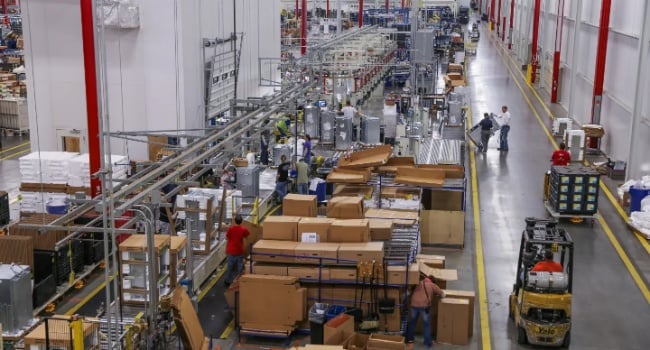The total value of unsold manufactured goods in Nigeria soared to ₦2.14 trillion in 2024, marking an 87.5% increase compared to ₦1.14 trillion recorded in 2023. This sharp rise highlights ongoing struggles in the manufacturing sector, including weak consumer demand, rising production costs, and a drop in purchasing power.
This data was released in the latest economic review by the Manufacturers Association of Nigeria (MAN), covering the second half of 2024. Despite the overall yearly surge, the report noted a 27.9% drop in unsold inventory during the second half of the year compared to the first. This suggests some improvements in inventory management, better clearance strategies, and possible price adjustments by manufacturers.
The sectors most affected by the accumulation of unsold stock were Food, Beverage, and tobacco and Textile, Apparel, and footwear. These industries faced significant pressure from reduced consumer spending and input cost inflation.
MAN also reported a slight improvement in capacity utilisation, which rose to 57.0% in 2024 from 55.1% in the previous year. The second half of 2024 saw a 1.2 percentage point increase over the first half, indicating a modest recovery. However, the sector remains constrained by expensive energy, unstable foreign exchange rates, and high interest rates.
Some industries showed stronger recovery than others. Non-Metallic Mineral Products, Motor Vehicle & Miscellaneous Assembly, and Chemical & Pharmaceuticals recorded the highest gains in capacity use during the year.
The review also pointed to an increase in the use of local raw materials. The share of locally sourced inputs rose to 57.1% in 2024 from 52.0% in 2023. This change was largely influenced by foreign exchange shortages, high import bills, and policy efforts to encourage local content. Significant improvements were seen in the Wood & Wood Products, Textile, Apparel & Footwear, and Chemical & Pharmaceuticals sectors. In contrast, Electrical & Electronics still rely heavily on imported components and saw limited progress.
Segun Ajayi-Kadir, Director General of MAN, described 2024 as a challenging year for the industry. He cited high inflation, exchange rate instability, and increased production costs as major obstacles. While there were signs of resilience in some areas, including better local sourcing and slight gains in output, the overall performance remained underwhelming. Ajayi-Kadir stressed the importance of stabilising the economy, improving energy access, and expanding affordable financing options to support future growth.

